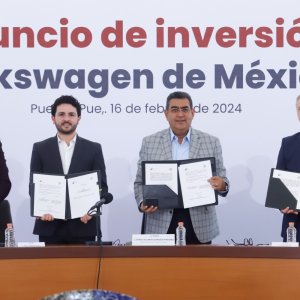Swiss Dual Education: A Key Tool for Employability in New Normal

STORY INLINE POST
The COVID-19 pandemic has been described as not only a health issue, but one that will have adverse consequences on the economic, financial, social and political arenas. In fact, according to the United Nations Development Program (UNDP), this pandemic is one of the most serious challenges humanity has faced in recent times, and it will bring significant long-term consequences for the economic stability and development of the world over the years to come. The picture is no more promising for Mexico, a country with high inequality and unemployment rates. Mexico has dealt with major challenges in terms of formal-sector employment even before COVID-19. The pandemic implies the deepening of the major issues that Mexican society faces and is likely to translate into reduced household income, restricted access to credit and accentuated unemployment figures.
From the private sector perspective, this outlook offers a window of opportunity for companies to think creatively in order to adapt to this novel scenario and find joint solutions that could counterbalance the negative effects of the pandemic by helping society to build resilient competences as we embark on the “new normal” era. While in some cases it is crucial to continue innovating in order to find fulfilling solutions, in some others there is no need to reinvent the wheel, as we had already designed employability programs before the COVID-19 outbreak that can be strengthened today. A great example of this is the Swiss Alliance for Dual Education, which in November celebrates its fourth anniversary of implementation in Mexico. Through this initiative, the Embassy of Switzerland in Mexico and the Swiss-Mexican Chamber of Commerce and Industry join efforts to ensure that young Mexicans who are studying at a technical high-school acquire professional skills to facilitate their entry into the formal labor market.
This Alliance seeks to make use of the Swiss experience in the educational model known as “dual education training,” which has been considered one of the key reasons that explain why Switzerland has one of the lowest rates of unemployment in the world. This public-private initiative was launched in 2016 with the main objective to strengthen the Mexican educational system by linking students from technical high schools with Swiss companies, and thus contribute to the academic training process in order to promote employability.
Today, six major Swiss multinational companies with operations in Mexico are active in the training of young Mexican apprentices through the Swiss Alliance for Dual Education: Bühler, Clariant, Firmenich, Nestlé, Schindler and Zurich. Together, these companies have trained 340 apprentices (65 percent men and 35 percent women) in 17 technical careers, including accounting, electromechanics and industrial chemistry, in seven Mexican states: Chiapas, Mexico City, State of Mexico, Guanajuato, Guerrero, Jalisco and Queretaro, with the help of more than 140 tutors. Additionally, young apprentices receive a scholarship from both the government and companies that range of which depends on the state in which they carry out the training, the company in which they are trained, and their gender (since some companies grant higher scholarships to female apprentices in technical careers to close the gender gap).
Another central objective of the Swiss Alliance for Dual Education is to contribute, through experience and institutional knowledge, to the implementation and strengthening of the Mexican Model of Dual Training. This model has had a legal basis since 2015 and its implementation made of Mexico the first country in Latin America to institutionalize a dual training model similar to that adopted in Germany, Austria and Switzerland. Through this model, more young Mexicans studying at the National College of Technical Professional Education (CONALEP) benefit from the combination of practical-technical learning in companies (about 70 percent of training time) and theoretical schooling (30 percent of the curriculum).
Reflecting on the Swiss experience, the benefits of this public-private partnership are multiple and advance the development of individuals, businesses, and communities. On the one hand, young people receive high-quality technical education and learn about innovative processes implemented by Swiss companies. In addition, young apprentices develop soft skills because of their socialization in a work environment where collaboration and teamwork are encouraged. Perhaps more importantly given the current situation, this initiative promotes the early entry of youth into the labor environment, which, in turn, contributes to reduce unemployment rates in Mexico. On the other hand, companies benefit from the skills of highly qualified personnel who will respond to the needs of the company, which increases productivity and quality in production processes while simultaneously reducing the rate of job desertion. For these reasons, it is possible to assert that dual training is not part of the social responsibility of companies, but rather a medium and long-term investment strategy in human capital.
The program’s growth perspectives are encouraging due to the great interest that other Swiss companies have expressed regarding the project. This project has also been implemented by Swiss chambers in other Latin American countries like Paraguay, Uruguay, and Venezuela. Accordingly, the Swiss-Mexican Chamber of Commerce and Industry is committed to continue promoting the efforts of the Alliance in Mexico throughout the “new normal” era to ease the negative consequences of the COVID-19 pandemic in Mexico through employability.








 By Fernando Cruz | President of the Swiss-Mexican Chamber of Commerce and Industry -
Thu, 01/14/2021 - 09:07
By Fernando Cruz | President of the Swiss-Mexican Chamber of Commerce and Industry -
Thu, 01/14/2021 - 09:07















